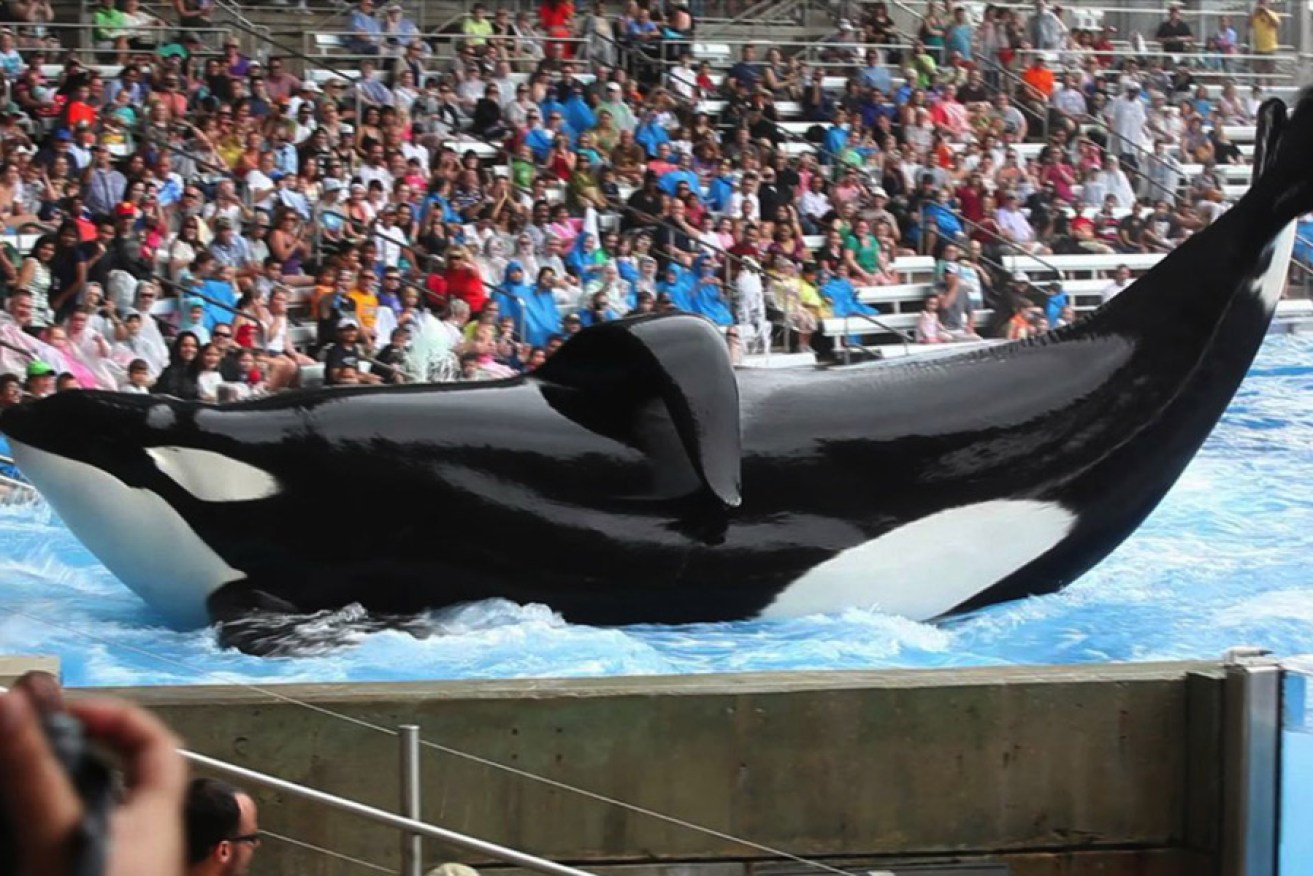Blackfish is a compelling feature-length documentary spanning more than 40 years, from when orcas were first captured in the wild by Florida’s SeaWorld water park to the present day.
It investigates how these whales have been used in a big money-spinning world, focusing in particular on an orca named Tilikum who has been directly involved in not one, but three human deaths while in captivity and, shockingly, is still “performing” in shows in 2013.
Fascinating, confronting and informative: these are key descriptors of an excellent documentary, and Blackfish ticks all the boxes. After the film’s conclusion at Sundance this year, it provoked a tremendous amount of discussion and as a result was picked up for distribution almost immediately. Blackfish has impact – it seems impossible to walk away from it and not tell someone about the shocking events that unfold throughout the course of its running time.
Particular attention is paid to the lead up to, and aftermath of, the most recent death – that of veteran SeaWorld trainer Dawn Brancheau, who was killed in February 2010. The narrative is largely linear and the bulk of the interviews are with former SeaWorld trainers who worked closely with orcas every day. The fact that most of these people feel that it was “too close” works wonders for driving home the messages the film hopes to convey.
There are some very raw moments from these people and others, including eyewitnesses to the deaths of trainers, as well as fascinating information from orca experts and a neuroscientist. Interviews with a fiancé and mother of a deceased trainer particularly pack a punch.
The facts presented about orcas being not only highly intelligent, but also amazingly emotive (more so than humans, it seems) further instils an uneasy feeling. This discomfort grows throughout the film, as does the sense of danger that these natural predators present to each other and humans with whom they come in contact while in captivity. There has never been a single (known) incident of an orca killing a human in the wild.
The danger never seems more apparent than a particularly haunting scene in which both above and below-the-surface footage is shown of senior SeaWorld trainer Ken Peter. It’s very tense as we see him being dragged down to the bottom of the tank several times by an orca named Kasatka.
The clearly astute and compassionate writer/director Gabriela Cowperthwaite is never seen on camera. She does not put herself in the film, as we have seen in the past with “exposé” documentaries from filmmakers such as Morgan Spurlock and Michael Moore. She has admitted since the film’s cinematic release that she is not a “confrontational person by nature” and that she is still getting over the waves she has caused with the immensely powerful documentary.
Blackfish puts forward a strong case for wild animals not belonging in captivity for the purpose of our entertainment, but Cowperthwaite has said that her initial vision was for an entirely different film; she had wanted to create a more “philosophical” exploration of orcas as magnificent creatures. However, she felt morally compelled to share the information uncovered in her initial research. Millions will likely be glad that she did.
Blackfish will screen again at 11.45am on October 19 at Palace Nova Cinemas as part of the Adelaide Film Festival.
More Adelaide Film Festival reviews
Tender
Battle of the Sexes
Omar
Tracks





